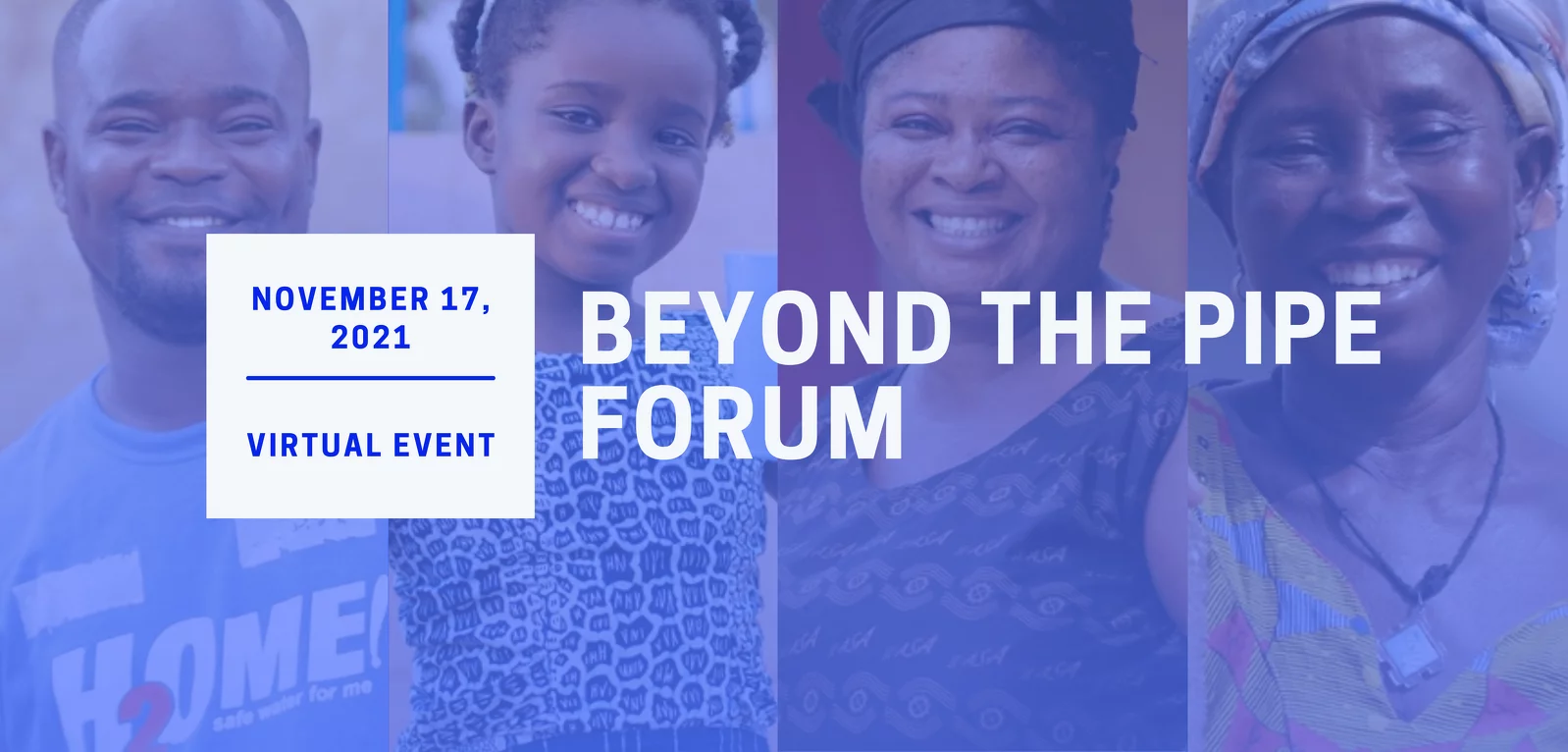Our 8th Ghana Beyond The Pipe Forum
Safe Water Network Ghana hosted its 8th Beyond the Pipe Forum on November 17, 2021. The virtual event brought together national and global industry leaders and stakeholders for a presentation and discussion on accelerating progress toward financial sustainability for safe water enterprises.
Charles Nimako, our Director of Africa Initiatives, opened the session by highlighting the importance of the Forum as a platform for sharing the latest evidence for delivering safely managed water at an affordable price and in line with SDG 6. Nimako made a call to action, emphasizing the importance of collaboration in reaching this goal: “Achieving long-term sustainability of small water enterprises requires the participation of every stakeholder on this platform…. government policymakers, development agencies, the private sector, and NGOs including small water implementers.”
Joseph Ampadu-Boakye showcased the work that Safe Water Network Ghana has done to quantify the full costs of delivering safe water and optimize stations to improve financial sustainability. The presentation underscored the high social and financial impact of delivering safely managed water through piped connections. Ampadu-Boakye also emphasized that financial sustainability goes beyond covering station expenses, including long-term sustainability costs for preventative maintenance and infrastructure renewal. Ampadu-Boakye shared a 5-year scale up plan to increase access to safe water in Ghana and improve the financial sustainability of Safe Water Network’s water stations.
We were joined by panelists Dr. Bismark Dwumfour-Asare, a senior lecturer at AAMUSTED Ghana, and Ahmed Yekini, the Finance and Procurement Director at 4Ward Development West Africa. The panelists discussed the challenges and successes of collaborating with governments and demonstrating the data needed to catalyze investment. Some key learnings that emerged:
- Sufficient data is essential to attracting subsidies and loans. Governments will look for transparency and evidence of cost-effectiveness. The ability for stations to demonstrate financial viability can attract loans, while the ability to demonstrate that water tariffs make up a small portion of customers’ income will drive interest in subsidies. Common performance indicators and benchmarking would encourage healthy competition and provide information that is useful for allocating subsidies.
- Collaboration with governments can benefit safe water enterprises, but ultimately this implies shared control. In particular, implementers of safe water enterprises want to see more clear policy around pricing and government officials should consider safe water enterprises in a wide variety of policy decisions, including tax exemptions and import tariffs.
- Generating a revenue surplus for safe water enterprises is not a means to deliver a profit to shareholders, but rather to enable reinvesting in sustainable community water supply infrastructure. Partnerships are critical for scaling and transparency will help increase access more effectively.
A companion field research Spotlight report, Accelerating Progress toward Financial Sustainability, released on conjunction with the Beyond the Pipe Forum, is now available to read and download on our website. The report details how our piped-connection service in Ghana moves customers up the water services ladder by providing safely managed water on household premises. Our goal is to scale this model to 1,000 communities across Ghana. Together with other implementers, we can achieve this by reaching financial sustainability, developing financing and governing structures, and refining implementation strategies.
